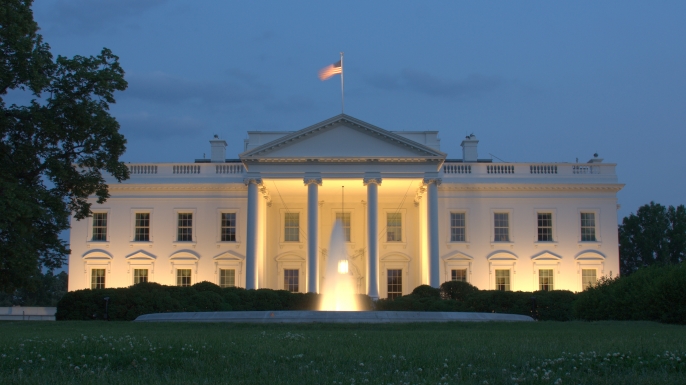By now, most of us are familiar with Donald Trump’s bold, in-your-face campaign to “Make America Great Again.” While Trump seems to have toned down his approach since winning the Presidential election, it’s a certainty that Canadian relations with our southern neighbour are about to change. After all, the President-elect was accurately predicted by an episode of “The Simpsons” 16 years ago.
One of the most shocking moments for me (of which there were many during Trump’s campaign), was when a 2012 tweet from Trump’s twitter account came to the surface, where he stated that “The concept of global warming was created by and for the Chinese in order to make U.S. manufacturing non-competitive.” The incoming president has openly denied climate change, and his policies could not be more different than that of his predecessor, President Obama. They could also not be more different than that of Justin Trudeau.
Trump has promised to scrap Obama’s Clean Power Plan, a policy implemented last summer to reduce greenhouse gas emissions. He’s even mentioned cancelling the Paris Accord, a global climate change agreement signed last year. Meanwhile, in Canada, Trudeau is pushing forward with a controversial carbon tax to be implemented by 2018, as well as the phasing out of coal power by 2030.
Another environmental policy that will likely be on Trump’s chopping block is the North American Climate, Clean Energy, and Environment Partnership, an agreement made by Obama, Trudeau, and Mexico’s President Enrique Pena Nieto in 2016. A key goal of this partnership is to generate at least 50% of power from clean sources by 2025, which is again, the opposite of Trump’s environmental agenda. Given that Trump threatened to build a wall across America’s border with Mexico, he won’t be staying in the partnership just for friendship.
If Trump does pull the U.S. out of the environmental partnership with Canada and Mexico, the policy won’t crumble apart though. Canada and Mexico still have a strong relationship, evidenced by the recent lift on Visas for Mexicans entering Canada, and the Mexican government ending a ban on the import of Canadian beef. The two countries will remain aligned, but without participation of the United States, the ambitious clean energy goal of the partnership will not be reached by 2025.
While reaching the goals made at the North American summit are dependent on the participation of the USA, Trudeau’s aggressive climate change policies within Canada may help combat some of the setbacks Trump implements. Despite widespread criticism of the carbon tax, Trudeau is moving forward with it. Alberta’s premier Notley initially vowed to reject the tax, unless Trudeau approved more pipelines. Hard hit by a slumping oil industry, Alberta was right to demand something in return for their support.
Earlier this week, Trudeau approved two pipeline projects, gaining support for his carbon tax from Notley. This was a smart move for the Prime Minister, because being the oil producing province, Alberta is the largest emitter of greenhouse gases in the country. While it remains to be seen what the effects are from the carbon tax, without Alberta’s support, it’s unlikely the tax would have a positive impact on the Canadian environment.
Meanwhile, in the United States, Trump is a coal supporter, and his promises to bring jobs back to the industry helped him gain the support of those in the declining coal industry. According to a 2015 study, over 50,000 jobs in the coal industry were lost between 2008-2012, providing the President-elect with a strong base of voters to support his platform. The planned increase of U.S. coal production is concerning for the air quality of Canadian border towns, specifically those in Ontario and Alberta, as coal production in the U.S. is highest in bordering states with these provinces. It’s doubtful that Trump can rebuild the industry to what it once was. Demand for U.S. coal worldwide has declined significantly, with exports decreasing by 23% in 2015. With the decrease in demand, the coal industry will not be the savior of American jobs that Trump had promised.
While Trump may set Canada back on its emissions reductions goals, Canada will continue to move forward with its environmental agenda. Despite criticism of Trudeau’s policies, the timing could not be better for taking a strong stance on protecting the environment. In combination with a strong global alignment for climate change action, the environment in Canada should not be negatively impacted by the new president.
Amy Hayman
Amy is a Commerce graduate working in the insurance industry, and is currently studying Public Relations in Toronto.


